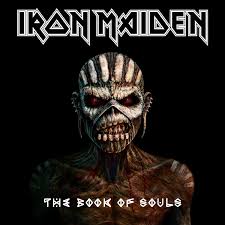 A couple of tweets from an acquaintance about the ubiquity of Iron Maiden and other classic rock and metal bands as background music in bars in Romania shows how mainland Europe has a quite different relationship with rock and metal compared to indie-dominated Britain. An equivalent bar in Britain would be playing Oasis or Ed Sheeran.
A couple of tweets from an acquaintance about the ubiquity of Iron Maiden and other classic rock and metal bands as background music in bars in Romania shows how mainland Europe has a quite different relationship with rock and metal compared to indie-dominated Britain. An equivalent bar in Britain would be playing Oasis or Ed Sheeran.
Especially in Eastern Europe, how much is this down to former Communist countries first encountering the music in a completely different context, such that it doesn’t carry the same cultural baggage as it does in Britain?
I know this is a recurring theme for me, but a big problem with British music is a critical establishment that defines every kind of popular music in terms of its relationship towards punk. A handful of snotty three-chord bands, or rather the pseudo-intellectual scribblers who worshipped them ended up casting a long shadow over everything that happened not only after 1977, but the years before. A lot of the narrative is revisionist nonsense, but it’s become the orthodoxy, endlessly repeated by those two young to have been there at the time. Anything that doesn’t fit the narrative risks being written out of history.
Eastern Europe experienced none of that. The fall of the Berlin Wall bought a flood of Western music, such that the cheesiest hair-metal of that time is revered in the same way the 1960s British Invasion is revered in America. Songs like Europe’s “The Final Countdown” and The Scorpions’ “Wind of Change” have a status that’s hard for people in Britain to imagine.
Although this doesn’t explain the huge popularity of metal in Scandinavia. So perhaps there’s another explanation?